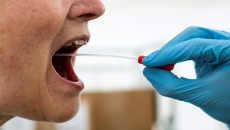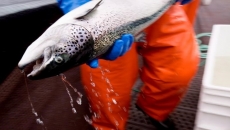British Columbia's public safety minister is warning of potential contamination in illicit cannabis and the dangers of misleading packaging for illegal cannabis edibles.
Mike Farnworth, who is also the solicitor general, says Health Canada requires licensed cultivators to test cannabis to make sure it's fit for consumption, but little is known about the quality of illicit cannabis products and production.
He says B.C.'s cannabis secretariat did a pilot study to test 20 cannabis samples seized from illicit stores across Metro Vancouver and the results are concerning.
Farnworth says almost every sample contained at least one of 24 different pesticides, as well as "unacceptable levels" of bacteria, fungi or heavy metals.
The study was done in collaboration with the B.C. Centre for Disease Control and the National Collaborating Centre for Environmental Health, which found just three of the 20 samples would have been immediately fit for sale had they been legal.
Farnworth warned of illicit cannabis edibles with packaging that imitates well-known candy, cookies and snack brands that could be appealing to children, saying the THC concentration in illicit edibles often exceeds the legal limits.
"For adults who have children in their lives, do not buy illicit cannabis that is packaged to look like candy, because kids can mistake it for candy and may end up in hospital," Farnworth told a news conference on Wednesday.
Buying cannabis products from an illicit storefront or online seller may also be supporting organized criminal operations, he added.
"In contrast, when you buy from a licensed seller, you can trust the label on the product, you know that you're supporting legitimate, local businesses and workers, and you can feel assured that the tax revenue will go toward the public services that we all rely on," Farnworth said.






